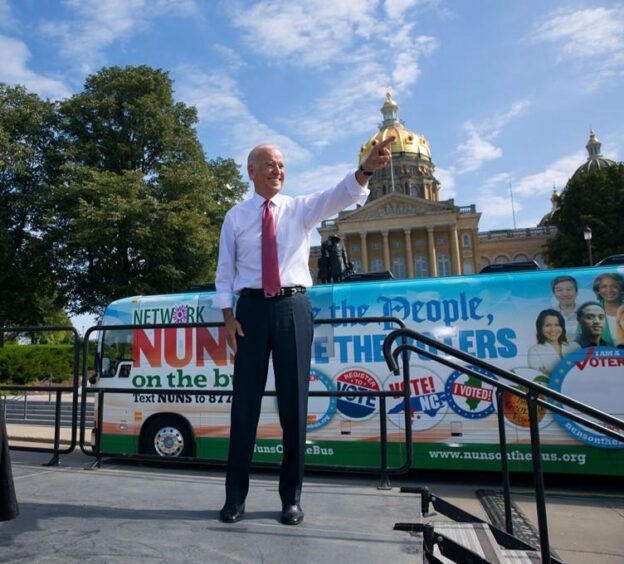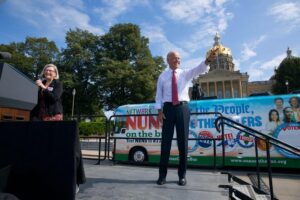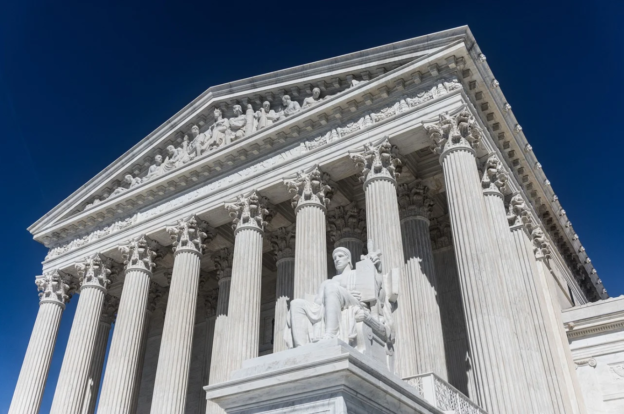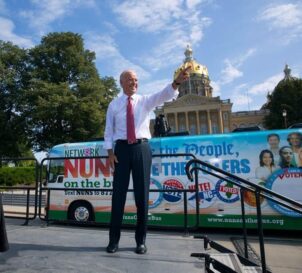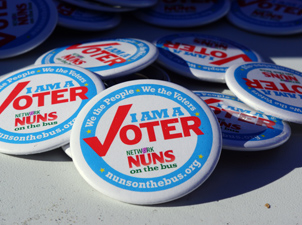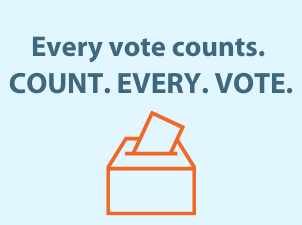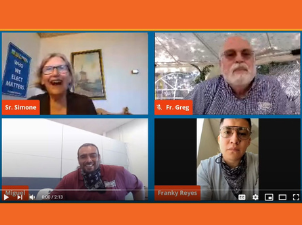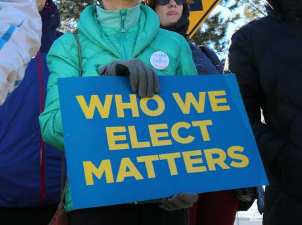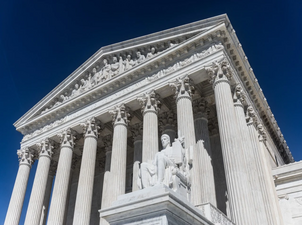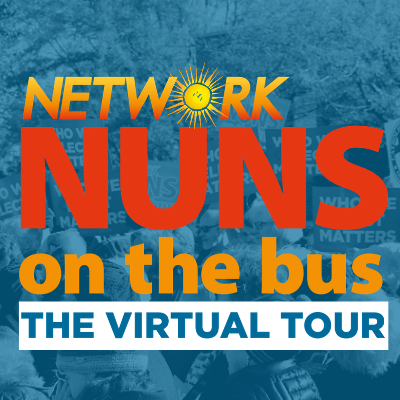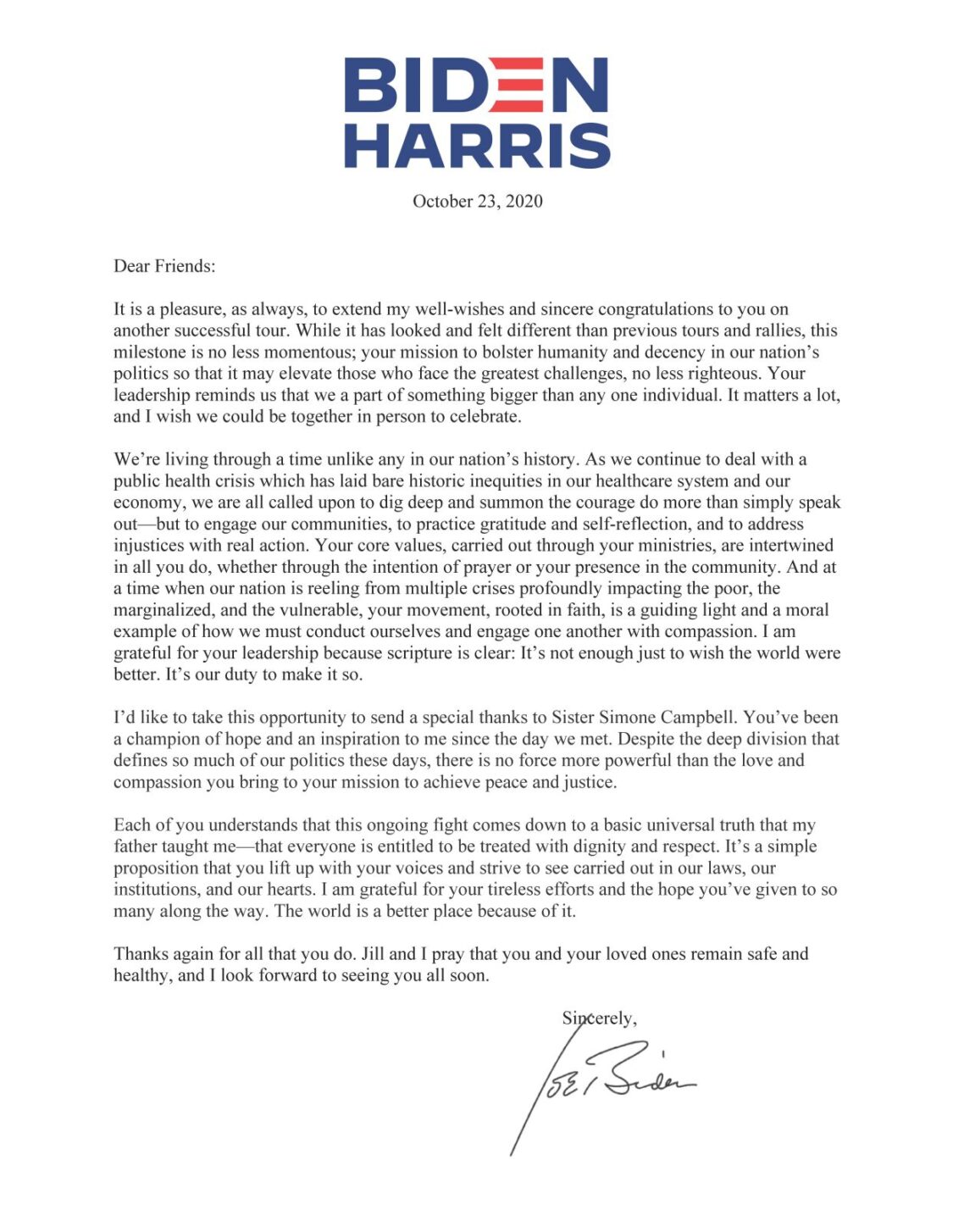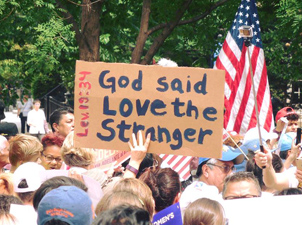
President-elect Biden Leads with Catholic Social Justice Principles
Audrey Carroll
November 20, 2020
Then Vice President Joe Biden joins Sister Simone Campbell on the 2014 Nuns on the Bus tour.
President-elect Joe Biden will be the second Catholic president of the United States. During the 40+ years of his political career, Biden has embraced and promoted Catholic Social Teaching, especially in the areas of economic inequality, health care, and immigration.
Biden embodies NETWORK’s Catholic Social Justice principles by taking a multi-issue approach to policy and justice issues. The Catholic Social Justice tradition encompasses the written teachings of the Church (Catholic Social Teaching) but is also broader, including the witness of all Christians and people of faith committed to proclaiming the love of the Gospel and the justice of God’s kingdom in the public sphere.
We at NETWORK are inspired in a special way by the courageous commitment of Catholic sisters living out Gospel justice. Catholic Social Justice is not a theory or an intellectual exercise, but rather how people of faith are called to live the Gospel in a broken and suffering world. See NETWORK’s Catholic Social Justice principles here.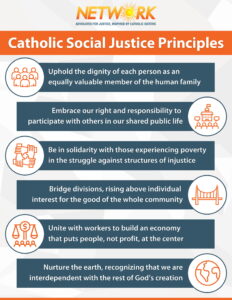
You may also download NETWORK’s Catholic Social Justice Principles as a PDF.







